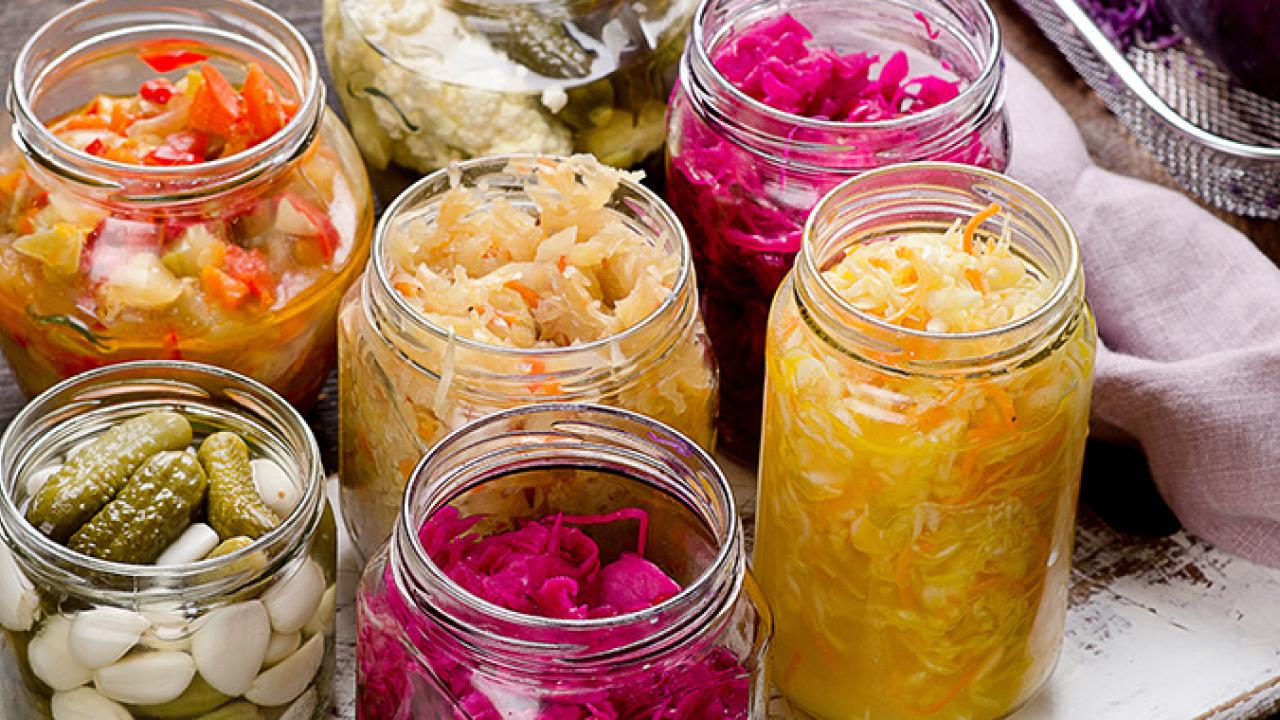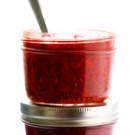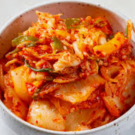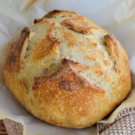
April – Beginnings of Spring: Fresh Start with Fermented Foods
Quick Summary
- Probiotics and fermented foods have made a pop culture resurgence over the last few years, becoming popular with products such as sourdough, sourkraut, kombucha, and other probiotic beverages
Beginnings of Spring: April’s Fresh Start with Fermented Foods
Welcome to this month’s issue of our Wellness Newsletter! This month, we are diving into fermented foods and how they can help your gut microbiome and support overall health.
On April 1, National Sourdough Bread Day recognizes one of the world’s oldest leavened breads! Believed to have originated in Ancient Egyptian times around 1500 BCE, sourdough has been a staple form of breadmaking since. During the California Gold Rush, sourdough was the principal bread, and it is still a huge part of cultures to this day. Unlike bread with commercial baker’s yeast, sourdough bread relies on starter: a mixture of water and flour that develops a population of wild yeast and beneficial bacteria, giving it its distinct flavor.
Where does this resurgence of popularity stem from?
Sourdough is rich in nutrients that the body can easily absorb, including folate, potassium, and magnesium! Folate plays a critical role in synthesizing DNA and other genetic materials, while potassium helps with nerve and muscle function and helps regulate heartbeat. Magnesium helps control blood sugar and protein levels and assists with protein synthesis. Sourdough bread also contains antioxidants that help protect your cells from damage, which can lead to cancer, heart disease, and Alzheimer’s disease! Lastly, it is fermented, providing many more health benefits, including improved digestion and much more!
What are the benefits of fermented foods?
Probiotics and fermented foods have made a pop culture resurgence over the last few years, becoming popular with products such as sourdough, sourkraut, kombucha, and other probiotic beverages. Fermentation is a process which was first developed by ancient societies for food preservation and has influenced cuisines around the world. Probiotic live cultures are found in various fermented foods, including yogurt, kefir, kimchi, sourkraut, and some pickles. The research on the benefits of probiotics in fermented foods is relatively new, but results have been promising.
Our digestive system, or gut, has a powerful influence on many aspects of our health, from mood, immune function, appetite, and weight management. Introducing live cultures from probiotics adds diversity to our gut microbiomes, which in turn boosts all the body functions our gut supports. Research suggests that maintaining a healthy gut biome may be shown to help prevent or manage obesity, as well as high blood sugar. For those with preexisting high blood pressure, eating fermented foods regularly has been shown to reduce both systolic and diastolic blood pressure readings by a few points. Overall, a healthy gut microbiome is connected with so many health benefits! It is hard to determine how well bacteria survive ingestion, but variety is best, especially variations of lactic acid bacteria!
Try making your own naturally fermented foods!
This recipe for spicy pickled vegetables (escabeche), is from the book Always Delicious, by Dr. Ludwig and Dawn Ludwig!
Ingredients:
- 2 cups filtered water
- 1 tablespoon sea salt
- 2 tablespoons apple cider vinegar
- 1 jalapeno or a few small hot chiles, sliced
- 1 large carrot, cut into ¼ inch rounds
- 1 to 2 cups chopped cauliflower
- 3 small stalks celery, cut into 1-inch-long sticks
- 1 bay leaf
- 1 cabbage leaf, rinsed
Instructions:
Warm the water (no need to boil), and stir in the sea salt until completely dissolved. Set aside to cool add the vinegar just before using.
Fill a quart-sized canning jar with boiling water in the sink to sterilize. Empty the jar and tightly pack the vegetables and bay leaf inside within 1 to 2 inches from the top. Pour the brine over the vegetables to fill the jar within 1 inch from the top and wedge the cabbage leaf, tucking it around the edges, to hold the vegetables beneath the liquid.
Set the jar on the counter and cover it with a fermentation lid. Alternatively, use a standard lid and loosen it a bit each day for the first few days, then every other day, to allow gasses to escape. Let pickle for three to five days, depending on the indoor temperature (the warmer the room, the less time needed). Check the taste after a couple of days, using clean utensils, and make sure the vegetables stay packed beneath the level of liquid. Add salted water if necessary (2 teaspoons sea salt dissolved in one cup of warm filtered water).
When the vegetables are pickled to your liking, seal the jar with a regular lid and refrigerate. The vegetables will continue to pickle slowly in the refrigerator and will keep for about one month. This recipe can also be made using a variety of different vegetables such as cucumber, cabbage, or radish!
Seasonal Recipe Spotlight
So many vegetables are in season, including asparagus, carrots, peas, strawberries, and so many more! Check out the Davis Farmer’s Market for an abundant selection of fresh produce
Food Geeks has a great site with seasonal produce and recipes for each crop. You can change your season at the bottom; anticipate what’s ripening in the months ahead!
Strawberries are rich in antioxidants, including Vitamin C, ellagic acid, and anthocyanins. These help protect your body from oxidative stress, which contributes to chronic diseases such as cancer, heart disease, and diabetes! They are also delicious and can be eaten raw or made in many various recipes!
Seasonal Recipes:

Strawberry Chia Seed Jam
This strawberry chia seed jam is sweetened with honey and uses chia seeds to create its jam-like texture! It offers a fiber boost with significantly less sugar

Kimchi
Kimchi, a Korean fermented vegetable dish made with cabbage and chili, is a flavorful and spicy side! It is nutrient-rich and packed with probiotics and fiber!

Sourdough Bread
Sourdough bread is so easy, versatile, and delicious! Try this recipe to make your own!

Salmon with yogurt dill
This sauce can be a go-to dinner recipe, perfect for guests or a busy night! Salmon is rich in omega-3 fatty acids, which support heart health, brain function, and reduce inflammation. This meal is protein-packed, with extra probiotics from the yogurt!